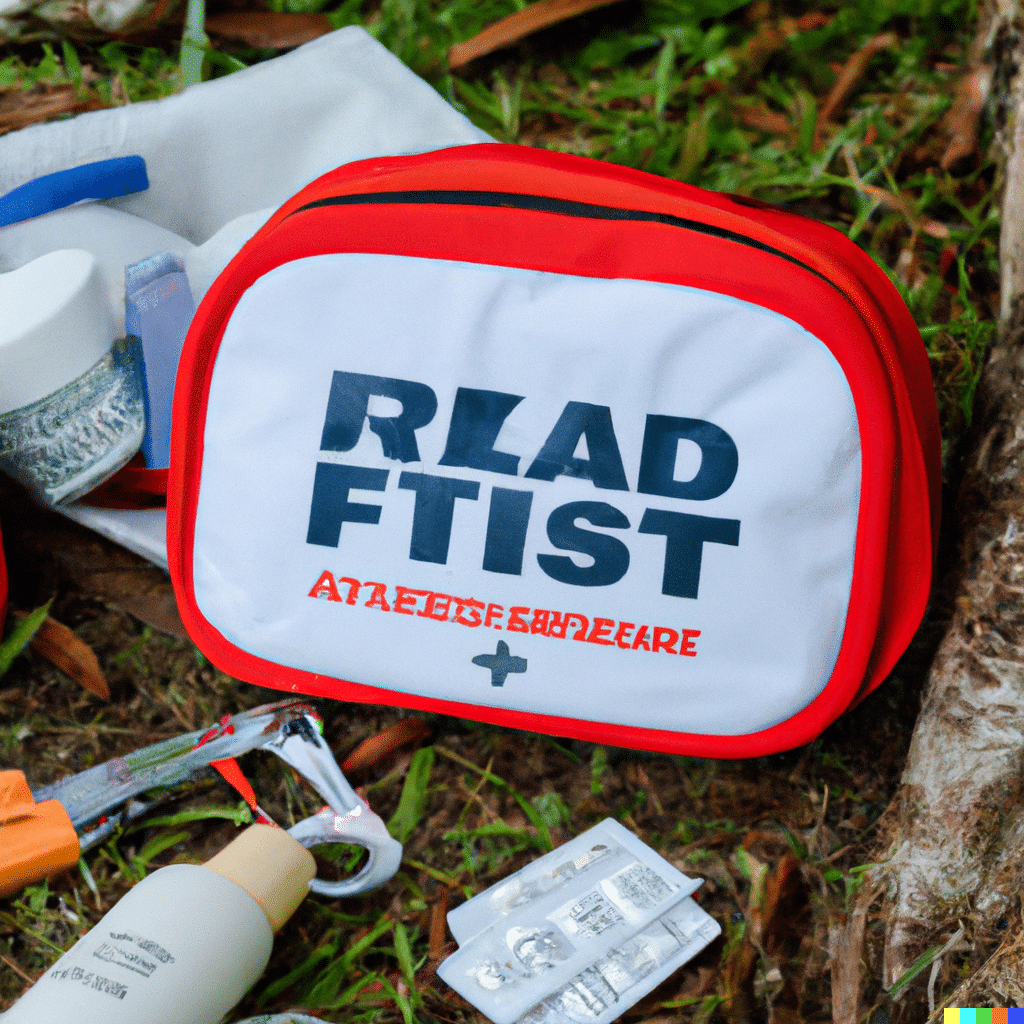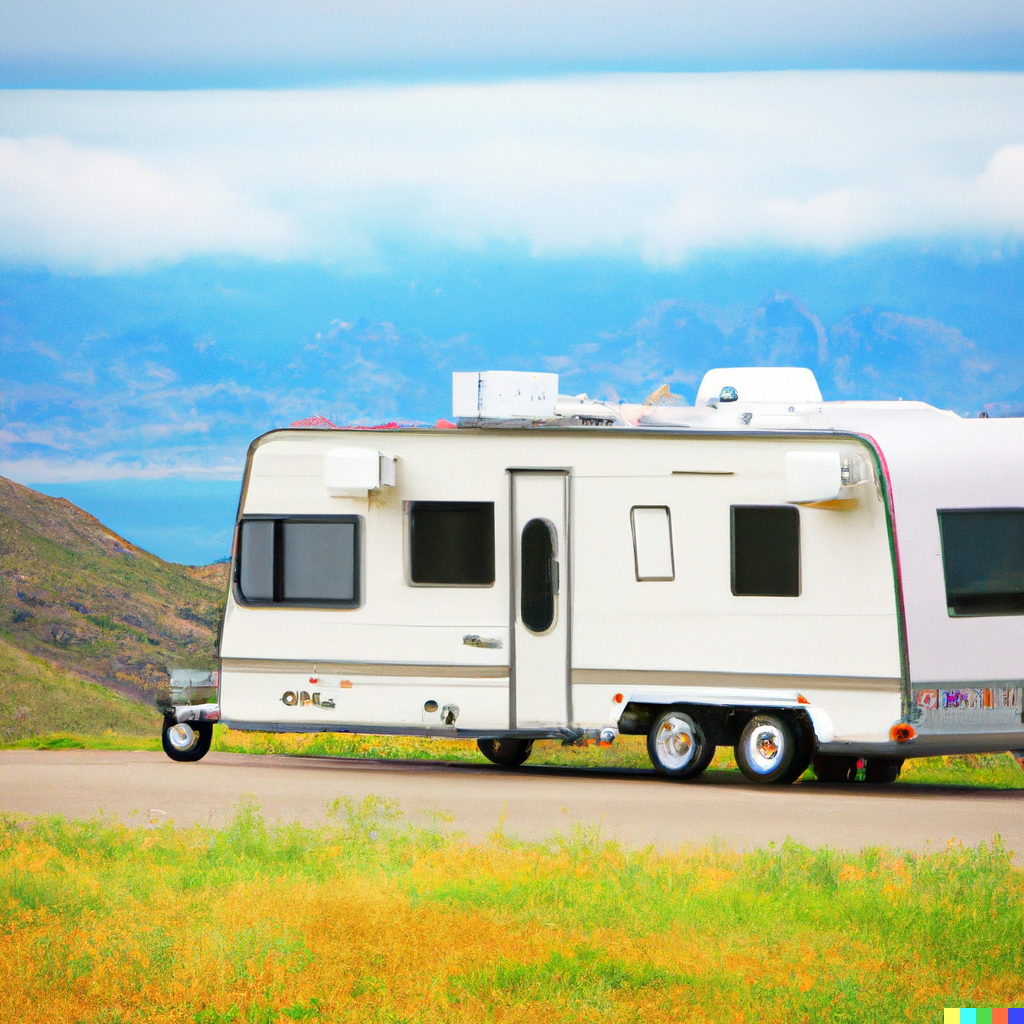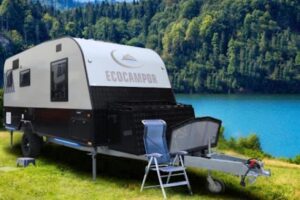A move like that requires planning, preparation, and a whole lot of research. No one is going to just know exactly what it takes to pull this lifestyle off, because this lifestyle is so deeply unconventional.
None of our parents expected us to be the people living in vans down by the river, right?
Lucky for you, I have been that guy living in a van down by the river (and the guy cooking dinner in a Starbucks parking lot), and I have learned a thing or two about life on the road.
Before transitioning to life in an RV, you’ve got to know a few things. First off, you’ve got to know…what to know; I hope to clear the fog surrounding what exactly you should research. Secondly, you need to know what you should buy and what you should get rid of in order to fly light and fast. Finally, there are many hard skills that all RVers need to learn to avoid frustrating and dangerous situations.
Let’s get into it!
What to know
Knowledge is power. Be the most powerful RVer you can be by deeply researching the following topics. Comprehensive understanding of these topics will set you ahead of the pack and shave off a couple months of tough learning.

Parking rules and regulations
You can’t just park your rig anywhere. Every city, state, county, and region has a unique set of rules and regulations that clearly spell out where a person can and cannot overnight in their RV. These regulations also dictate the length of time an RV can be parked in one spot, and what types of camping can be done in various areas.
RVers who ignore these regulations face anything from a slap on the wrist to a steep fine or, in worst case scenarios, an impounded RV.
I have also heard stories from friends who ended up in awkward social situations in which they were frantically packing up and leaving a neighborhood as angry locals berated them for camping overnight in front of their house.
Pro tip: Land managed by agencies like the Bureau of Land Management and National Forest Service are the best for free RV camping. National parks? Some of the worst RV camping in my opinion.
How you want live and travel (or not travel)
Most people assume that everyone living in an RV year-round is constantly traveling and scooting around the country. That’s not always the case.
Maybe you’ll want to live this way, or maybe you are drawn to a more sedentary life. Either way, knowing how you want to live while living in an RV is going to inform almost all of your decisions.
Will you be traveling around most of the time? Or will you stay for multiple months at a time in long-term RV parks? Do you plan to boondock primarily? Or are you confident that RV parks and campgrounds are your jam? Are you a social person or a homebody?
An intimate knowledge of how you plan to live and of your own internal desires will help you to decide everything from what kind of camper to buy, where to look for campsites, and how to maintain good mental health while living in an RV.
Income source and budget
Money is a huge variable while full time RV living. The amount of income you have, where it is coming from, and how you sustain it play a significant role in how your day-to-day life will go.
Remote workers will need to ensure they have access to strong, reliable internet and a good source of power to charge their computer. People living off of savings must have a solid budget and a plan on how to stick to that budget, so they don’t accidently blow through all of their cash.
Couples should have honest conversations about budget and work on creating a financial plan together. This is especially important if there are kids in the picture.
Solo travelers have a little less to worry about for budget, as sticking to a budget for one can be fairly easy. Even so, solo travelers can also benefit from a well laid out budget.
Educating the next generation
Speaking of kiddos, RVers with children have to decide how they are going to continue their kid’s education while living in an RV full time.

These days there is an abundance of alternative schooling options for kids who cannot attend a traditional school. Many online school programs offer e-learning courses designed to keep students on track with their traditional school peers, while education practices like unschooling puts the power of learning into the learner’s hands.
Folks who aren’t interested in these modern approaches to learning can always go with the classic textbook and curriculum based homeschooling method.
Climate
Where are you going to be living? And more importantly, what is the climate of that region? Do you prefer warm weather or cold temperatures?
Climate plays deeply into the everyday life of an RVer. What the weather presents season to season will have an effect on how much time you spend in nature, how you exercise, fuel costs for staying warm or cool in your RV, and even what kind of RV you live in!
Having a solid idea of where you want to primarily live in your RV will aid in much of your preparation and decision making.
What to buy
Before you fully transition into full time RV living, you’re going to have to fork up some serious cash to properly equip yourself.
The following items will make your life in an RV nice and easy.
Camper
Starting with the most important item, you can’t live in an RV if you don’t have an RV.
Deciding what type of RV to purchase is not easy and should not be taken lightly. You’re going to want to make sure that you like your new home on wheels, because you’re going to be spending a lot of money on it and a lot of time in it.
More than anything, buying an appropriately sized RV is key. I have heard too many horror stories of first time RVers buying way more RV than they needed, and immediately wanting to downsize. Or, vice versa, a family buying an RV that was not nearly big enough for the whole crew.
Buy informed, buy wise.
Security gear
Home security is important whether you live in an RV or a house.
Many RV outfitting companies offer products designed specifically for securing your motorhome or travel trailer from theft and trespassers. These products range from devices that make a trailer impossible to move, to alarms systems that will alert you to break ins while you are away.
Warmth
Full time RV living can get cold once winter weather hits. Like really, really cold. One of the most miserable experiences an RVer can go through is suffering through a bitter cold night without enough warm blankets and heaters.
I suggest that every RVer have at least one, ideally two, backup heaters that can be deployed if their primary heat source is not cutting it. These backup heaters can be as simple as an electric space heater or a small propane heater.
Heaters like these might not be enough to keep a camper hot, but they are sufficient at keeping an RV warm enough to get through the night.
In addition to space heaters, all RVers should have a backup reserve of thick wool blankets and down sleeping bags that can be used if heat sources fail.
First aid kit
Safety first! No camper is complete without a large, well-stocked first aid kit. As humans, we are awfully accident prone and quite frankly, injure easily. Having a first aid kit on hand and ready is an easy way to make sure that minor accidents do not turn into major problems.
Unfortunately, too many people do not see the value in a good first aid kit and don’t want to invest the right amount of money into one. Please, heed my advice and buy yourself a nice, large first aid kit.
You may be glad you did later down the line.

Gym membership
Even in spite of our best efforts, it’s not always easy for us humans to motivate ourselves to exercise outside. The world can be our gym, but typically, it just isn’t.
How is a food-loving, couch-dozing RVer to stay fit year-round? A real gym, duh.
I consider a membership to a gym to be a crucial part of any full time RVer’s arsenal of health hacks. Regularly exercising at a gym will keep your body in shape, your heart happy, your mental health on point, and can even result in some cool friendships.
On top of all of that, gyms have nice big showers with an endless supply of hot water. If you’re anything like me, you’ll go work out just for an excuse to use the shower.
Park pass
Over the years, a variety of RV clubs have formed in order to offer memberships that give club members access to thousands of private RV parks at discounted rates.
Many of these clubs offer a single membership that grants access to every participating RV park, while some split their membership offerings into specific zones. As a member, you get to decide which zone or zones you want to buy access to.
If you plan on sticking to one region, an RV club membership probably won’t benefit you a whole lot. But if you plan on exploring the vast nether regions of North America, a membership could save you some serious dough.
Health insurance
As an American citizen, health insurance is a must no matter where or how you live. Ideally your health insurance will be provided by an employer, but if you are a freelancer or work for a small company you may have to figure out your own health insurance plan.
When shopping for health insurance plans, focus on the range of the coverage. Look for plans that cover trips to emergency rooms or pharmacy visits across the nation. While living an alternative life, your support systems need to work in harmony with your lifestyle.

What to learn
When I chat with folks who have recently transitioned toward the full time RV lifestyle, they often excitedly talk about how much they have learned as an RVer. These things range from backing up a trailer, to mechanical diagnostics and repairs, and even some basic navigation skills.
Unfortunately for most of these folks, they had to learn these skills during times of minor crisis. The intensity of a single moment forced their hand and expedited the learning process through the universal currency of urgency.
I think it almost goes without saying that it is better to learn vital skills when not in a state of emergency. Do yourself a favor and try to learn the following skills before hitting the road.
Changing a flat tire
Tires pop. It just happens. Nice, new tires pop from road debris, and old, weary tires pop from overuse. It’s almost impossible to predict exactly when a tire is going to go, so you need to be prepared well in advance.
If you don’t know how to change a flat tire on a car, ask a friend or family member to show you how. If no one in your community can lend a hand, YouTube has more than enough tutorials to help out.
Once you know how to change a tire on a tow vehicle, learn how to also change a tire on a large rig like a travel trailer or motorhome.
As a backup plan, it never hurts to have a subscription to a roadside assistance service like AAA.
Backing up a rig
Trailers are notoriously difficult to back up. Motorhomes are large and unwieldy with too many blind spots. RVers who do not learn to reverse their rig before setting off on a big adventure usually regret it that very first day.
You will find that while traveling in a camper, you have to reverse a lot; RV parks don’t often have pull-through sites, and some rural roads do not have large turn around zones.
Go ahead and ignore every other piece of advice I give here today if you want but listen to this one: Learn how to reverse your camper smoothly, cleanly, and accurately.
Camper maintenance

Anyone who has read more than a few of my posts knows that I am a huge advocate for learning as much RV maintenance as possible. The skills you learn to maintain the health of a camper are transferable to so many other aspects of life and will benefit you forever.
On top of that, it’s simply a smart move to be diligent about camper maintenance. The best way to protect the financial investment you made in your RV is to keep it as healthy as possible.
Learn maintenance skills like plumbing upkeep, dumping and cleaning holding tanks, seams and seals inspections, battery upkeep, checking engine fluids, and changing air conditioner filters.
There are so many more things to learn, but those are a few big ones.
Engine triage
Yes, I know I am using the word triage liberally.
But when your engine refuses to do its thing, being able to perform a basic, preliminary assessment of the issue is valuable. Sometimes all it needs is a bit of water or coolant. Other times, it needs to be towed into a proper shop for some real repairs.
Either way, try to get to a point where you can make that call when necessary.
How to cook
As most people transition into RV life as a way to save money, going out to eat simply isn’t an option. With that in mind, being able to whip up some delicious home cooked meals is an incredibly valuable skill for any full time RVers.
No judgment here, but I’m honestly shocked at how many people don’t know how to cook even basic meals. A lot of delicious food can be cooked with a couple vegetables, a protein, and a rack of spices, as long as you know what you’re doing.
So, make sure you can live off more than mac and cheese and ramen noodles by expanding your cooking repertoire.
First aid
No point having your super awesome first aid kit if you don’t know how to use it! First aid skills literally save lives, and they could save yours too.
Take classes to learn such things as CPR, the Heimlich maneuver, basic wound dressing, and how to treat burns of varying severity. Oftentimes some of the best knowledge learned in first aid classes is learning what not to do in an emergency situation.
What to ditch
RV life is all about minimalism. Most first timers quickly realize that they packed way too many clothes, pieces of gear, and sentimental items than they needed to live the RV life contentedly.
Houses can store so much stuff. So much more stuff than people actually need or use daily. While full time RV living, this stuff quickly becomes a burden.
Nomadic RVers feel this burden in fuel costs and travel times, while sedentary RVers find themselves feeling cramped and boxed in by their overly stuffed closets and storage compartments.
Here’s what you’ll want to ditch.
Clothes
I kid you not, you will probably need about one quarter of the clothes that fill the closets and dressers of your house. For whatever reason, full time RV living seems to inspire folks to wear just a couple of outfits over and over. This results in not needing too many clothes.
I suggest getting rid of most of your daily clothes, only holding onto a handful of pants and shirts that you really love and can wear repeatedly. Have one or two outfits for going out and dressing up, and a couple of fun whacky pieces if you like dressing a bit crazy for concerts and events.
Warm clothes, durable outdoor clothing, and activewear should be prioritized. Designer clothing and fashion wear isn’t practical enough for RV life.
Trust me, however much you are considering ditching, double it. Every single RVer I know ditches half their clothes within months of setting out. It’s wild but it’s true.

Subscriptions
In this day and age of mass entertainment and a million subscription services, it’s important to be intentional about what we pay to subscribe to.
Carefully go through your subscriptions and determine which will still serve you while living the RV life, and which might be time to say goodbye to.
Will you need 5 or 6 streaming services while living in an RV? Hopefully not.
Pets
This is a tough one. While many pets respond great to life in a camper, some do not. It can be difficult to part with a cherished pet, but sometimes it is simply the right thing to do.
Most dogs and cats can adjust to life on the road just fine. Dogs typically have no issues at all, but some cats have interesting reactions to the lack of stability and have been known to run away.
If you know your animal will not adjust well to life in an RV, it’s better to rehome them with a loving family before moving into your RV.
Frequently asked questions
Is living in an RV cheaper than living in a home?
It can be! But it isn’t always. How much money you can save while living in an RV is entirely dependent on your lifestyle, and what you are or are not willing to sacrifice.
Is it better to camp in RV parks or boondock?
I’m always an advocate for boondocking. I think it’s more fun and a better way to connect with the natural world. Is it better? That’s for you to decide, bud.
Conclusion
If you have been thinking about trying out RV life, stop thinking about it and start working towards it. Really though, what have you got to lose? Life is about taking big risks and reaping the rewards, even if those rewards are just some tough lessons.
Be bold. Take the leap. Jump and your wings will spread.
Happy camping, friends. See you on the road.



